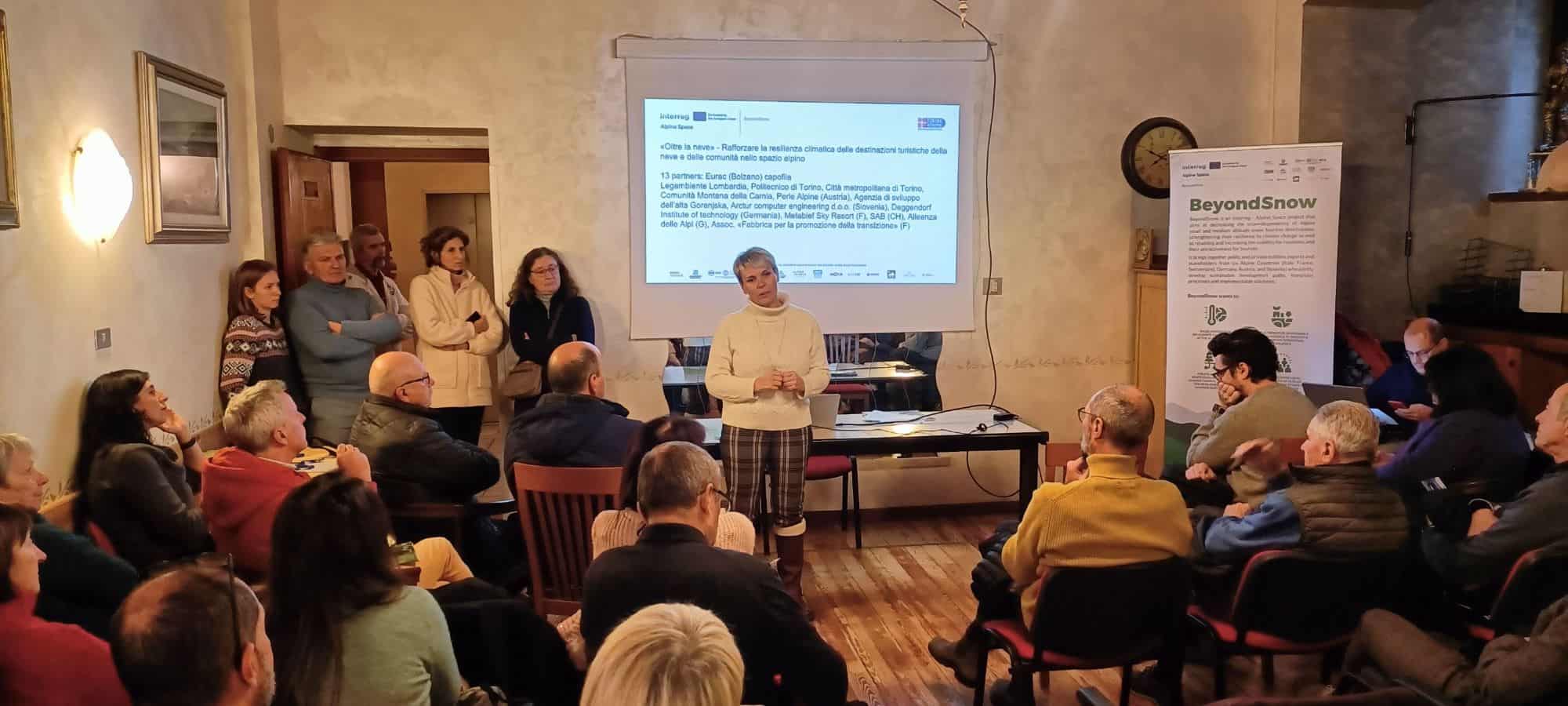With the imminent start of the “Sensitive Diagnosis”, a tool to engage and empower communities facing transitions, the “BeyondSnow” project is entering the thick of things in the Metropolitan City of Turin. The “diagnosis” consists of a participatory discussion process with local stakeholders to analyze the development prospects of the pilot area municipalities that have hitherto based their economy mainly on winter and summer tourism, in response to the project’s objectives.
On January 9th, in Ala di Stura, one of the 2 pilot area municipalities, the project was presented to local economic operators and the population, as well as to local institutions, organizations and administrations. The meeting involved the stakeholders present to understand their perceptions of climate change and how it may or may not affect guest numbers.
To frame the situation of these two municipalities in the Lanzo Valleys, data was presented on the trend of tourist flows over the last decade, with a comparison between pre- and post-Covid, on the size and occupancy rate of the accommodation offer and some information on the climate trend and snow cover on the ground in the area considered. In light of the data presented, an initial discussion was initiated among the participants to begin reflecting on the need to expand, diversify and destagionalize the tourist offers. These considerations may also be of interest to neighboring valleys.
Among the ideas that emerged here is certainly the opportunity to enhance the tourist value of the water resource of Pian della Mussa, the bottling plant and the brewery: in fact, this reality, which represents an important economic resource for the municipality of Balme, could be included in a path of discovery of the valley’s peculiarities. Other elements that can represent points of interest are represented by the cultural and material heritage of the sundials and frescoes, the ancient mule tracks and the hiking trails that however need more attention. In this regard, it was emphasized how important it is to involve the population so that they are the first to enhance their territory and take care of it.
The discussion revealed a new trend: the growing demand for bike and e-bike rental in all seasons. A potential to be developed concerns the orientation of hikers from German-speaking countries to go trekking in the autumn months. This could be enhanced to rethink the tourist offer focusing on the shoulder seasons.
Although there is still an attachment to the idea of two tourist seasons, new visions are beginning to emerge. These insights will surely be useful and worth exploring in the participatory workshops in the coming months.



